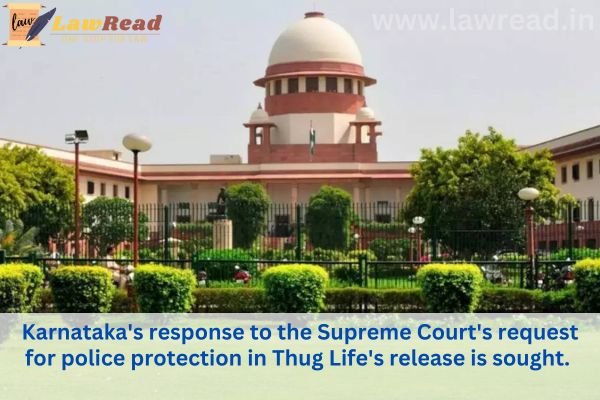News
If the accused is served with a consolidated notice of demand, a single complaint for the dishonor of more than three checks may be maintained: The J&K&L High Court
The petitioner challenged the allegation against him, which claimed that he had committed an offense under the Negotiable Instruments Act, in front of the Jammu & Kashmir and Ladakh High Court.
.jpg)
The Jammu and Kashmir High Court ruled against a petition contesting a complaint filed under the Negotiable Instruments Act and reiterated that if the accused is served with a consolidated notice of demand, a single complaint regarding the dishonor of more than three checks may be filed.
The petitioner appeared before the High Court to contest the respondent's complaint against him, which claimed that he had committed an offense under Section 138 of the Negotiable Instruments Act (NI Act). Additionally, the Trial Magistrate's order that took cognizance of the offense and issued the process against the petitioner was challenged.
Judge Sanjay Dhar of the Single Bench of Justice stated, "The question of whether a single complaint would be maintainable in respect of more than three checks has been dealt with by various High Courts of this Country and it has been the consistent view of the Courts that a single complaint in respect of dishonour of more than three checks is maintainable if a consolidated notice of demand is served upon the accused."
While Advocate Syed Sajad Geelani represented the Respondent, Advocate M. Amin Khan represented the Petitioner.
Background Information Factual
A complaint was submitted to the Trial Magistrate by the Respondent-Complainant, who claimed that the petitioner had committed an offense under Section 138 of the NI Act. The petitioner allegedly consented to sell the land to the respondent for Rs. 20 lakh, according to the complaint. When it was discovered during verification that the land was mortgaged to the bank, the complainant/respondent asked the petitioner/accused to return the sale consideration that he had previously given to the petitioner.
The petitioner/accused allegedly issued four checks in the respondent/complainant's name to cover the amount of the sale consideration. Due to insufficient cash, the checks that the respondent/complainant deposited with his banker were returned unpaid. Following that, the petitioner/accused received a single legal notice from the respondent/complainant requesting that he pay the sum due for the returned checks within fifteen days. Nevertheless, the petitioner filed the contested case after failing to fulfill his obligation to the respondent.
Arguments:
The petitioner argued that the dishonor of the four checks in this case constituted separate and different offenses, and that the impugned complaint could not have been filed to try them all together.
The Problem
The Bench's primary concern was whether it is possible to file a single complaint about the dishonor of more than three checks.
Thinking through
The Bench explained, “As per Section 219 of the Cr. P. C, when a person is accused of more offences than one of the same kind within the space of twelve months from the first to the last of such offences, he may be charged with and tried at one trial for any number of them not exceeding three. Thus, only upto three offences of same kind committed by an accused within a period of twelve months can be tried together in one trial.”
The Bench made it clear that a person must draft a check for a sum of money in the name of another person in order to fully or partially settle any debt or other liability in order for Section 138 of the NI Act to be considered an offense. Second, the bank should return the aforementioned check unpaid, either due to a lack of money or because the amount exceeds what was agreed to be paid from the account. In the third step, the payee or holder must demand payment of the money by sending a written notice to the check drawer within 30 days of learning of the dishonour of the check.
Finally, if the drawer does not pay the money to the payee or holder within 15 days of receiving the notice, Section 138 of the NI Act is violated.Therefore, the offence under Section 138 NI Act would not be complete unless the payee served the drawer of the check with a demand notice after learning of the check's dishonor and the drawer did not pay within fifteen days of receiving the notice of demand, the Bench stated. Only when the drawer of the check fails to pay the amount of the check to the payee or the holder within fifteen days of receiving the notice of demand does the payee have a right to file a complaint against the drawer. It further stated that "the mere act of issuing a check or embarrassment by the banker does not give rise to cause of action for filing a complaint against the drawer of the check.
" The Bench ruled that the mere issuance or dishonour of the four checks in question would not be an offence against the petitioner because it did not give rise to any cause of action in favour of the respondent. It was observed that the dishonor of four separate checks sent out to the respondent by the petitioner did not constitute four distinct offenses in this case. A single offense was committed against the petitioner when he neglected to pay the respondent the sum within the allotted fifteen days after receiving a joint notice of demand. Accordingly, the Bench noted that Section 219 of the Cr. P. C. is not applicable to the facts of this case. Citing rulings from many High Courts in the cases of Pawan Dhanpatrai Malhotra vs. Mahender Khari (2024), U-Turn and others vs. State of Gujarat and another (2024), and Sh. Charashni Kumar Talwani vs. M/S Malhotra Poultries In the 2013 case of Kumar Talwani vs. M/S Malhotra Poultries, the Bench reiterated that if the accused receives a consolidated notice of demand, a single complaint about the dishonor of more than three checks may be filed. Consequently, the Bench rejected the Petition, determining it lacked merit.
Title of Cause: Fayaz Ahmad Rather v. Tariq Ahmad Wani (Case No.:CRM(M) No.405/2023)
Looking:
Advocate M. Amin Khan filed the petition.
Advocate Syed Sajad Geelani is the respondent.












